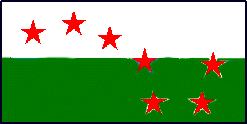As Oscar Wilde put it
It is somewhat ironic that an academic report that Wales needs more "innovative" grassroots media to help explain how the nation works and hold those in power to account, seems to be hardly reported.
Dr Daniel Evans of Cardiff University said there was a "farcical situation" where people did not know who ran what, leading to a lack of scrutiny.
He pointed to findings that fewer than 5% of Welsh people read Welsh papers.
Yes 5% and it is worrying that those of us who take an active interest in Welsh Politics could be fooled in thinking that even a major scandal will have an impact on Opinion Polls or Elections.
The assembly could play a part in supporting services such as blogs and hyperlocal websites, he added.
"Welsh people simply don't hear anything about Wales or Welsh politics," Dr Evans wrote in an article for the Open Democracy website.Dr Evans said the lack of a "truly national" Welsh newspaper led people to rely more heavily on the BBC.
"The general lack of coverage about the Welsh assembly or Welsh policy distinctiveness has led to a farcical situation whereby no one knows who does what, who is in charge of what, and so on.
"In my own field of education research, for example, teachers have told me how they are frequently confronted by upset parents scared about changes to education, unaware that the changes they have seen on the news only apply to England.
"This lack of information directly contributes to political disengagement and the uniquely low election turnout in Wales, as well as undermining the Assembly and devolution itself."
However, he claimed that spending cuts on English language programming meant the corporation was "failing to accurately represent Wales".
As far as the solutions go, Dr Evans told BBC Wales he would like to see more "non-statist" media emerge, like the Wings over Scotland and Bella Caledoniablogs in Scotland and Welsh examples such as the Jac o' the North blog and the Grangetown community website in Cardiff.
Of course Wings and Bella have been boosted by the Scottish Independence Referendum and the grassroots campaign which although the referendum was lost transformed Scottish political allegiances in which the divide is now between Left of Centre Independence supporters and Right wing Unionism.
We must remember that the Scottish Media is almost totally Unionist and put out a daily SNP Bad message which is countered by Wingd Bella and others like the excellent MUNGUIN'S NEW REPUBLIC.
So it may well be that even a London and Unionist Media that had "Welsh" additions that attacked Plaid on a daily basis , would actually create an interest which results in greater support for Welsh Independence.
I would argue however that the Plaid fell into a trap of thinking that it was more important to make the Assembly weak as it was work and not push for Independence or even parity with Scotland.
At the first Assembly elections in 1999, under the leadership of Dafydd Wigley, Plaid Cymru came very close to getting more votes and more seats than Labour. There was, understandably, panic within Labour ranks, so the Labour government in London had words with its friends in the media. One result was the arrival of the Welsh Mirror newspaper, nothing more than the English Daily Mirror with articles slagging off Plaid Cymru and regular scare stories and borderline racism from Paul Starling, who also wrote for the New Statesman. Soon Dafydd Wigley was removed, Labour came back strongly in the elections of 2003, the Welsh Mirror went back to being the Daily Mirror, and Paul Starling seemed to disappear.
The problem is that we need a Media covering Welsh politics even if it hostile in order to raise the Independence issue , but that will only come when the Independence issue is seen as a threat.

No comments:
Post a Comment